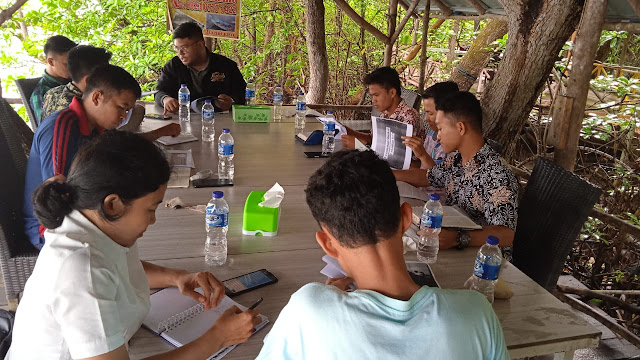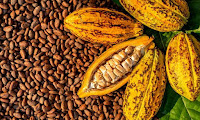By: Iman Kristina Halawa.
Biodiversity is important to build sustainability and human welfare, with no exception in Bengkulu City. It became a discussion topic for Stube-HEMAT and STTAB students to learn Sustainable Development Goals related to local food products to fulfill the basic needs of the Bengkulu people. (Saturday, 25/2/2023).
Indonesia is rich in local food variety in many regions, including Bengkulu. Actually, people got many benefits by consuming local food, but they did not optimize it yet, including its management. Like the experience of one of the participants who shared about local food in Nias, his hometown. Some raw tubers are sold and the money is used to buy instant foods such as noodles and canned fish. Iman Kristina also revealed the sale of fresh bananas from Nias island to the west coast of Sumatra, however, these commodities return to Nias in the form of banana snacks, commonly as gifts.
Each region has local food but it is not optimal either availability or utilization for consumption, while it is important to meet the food needs and support the farmer's economy. A limited variety of local food cooking causes low consumption of local food, for example, tubers, which are processed traditionally just by boiling, roasting, or frying it for consumption. The challenge is how to boost the creative cook of local food. With a creative way of cooking, the community becomes interested and it will increase the selling value of the products so that the community's economy will increase.
The discussion group will cook local food such as cassava and coconut to be some products for students. They can process them, and can even become alternative ones other than rice. If there is a disruption of rice supply in remote areas, students living in remote areas can take action by utilizing local food as an alternative for the community. In the current millennial era, people, especially youngsters, tend to consume food that is attractive and instant, so we must be creative to produce local food to be up-to-date food in performance matching with the needs and desires of the public so that local food will be 'attractive' for them.
Yohanes Dian Alpasa, the Multiplicator of Stube HEMAT in Bengkulu encouraged students to plan local food products, from preparing the ingredients to the detailed marketing. Some materials and tools needed can be found easily, whereas, some others that are unavailable in the market may be provided from other places in Bengkulu.
Even the smallest effort to find alternative food other than rice is urgent to do, and students in Bengkulu must have the courage to take the initiative to start, by finding potential local food in Bengkulu, cooking and producing it from now on. ***









Comments
Post a Comment